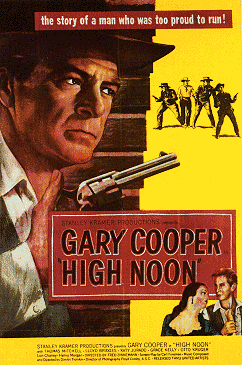Le présent billet est la traduction d'un article rédigé en anglais par Jonathan Goldberg et publié il y a quelques jours sur ce blog.
There is no etymological connection between the English adjective “high” and the French adjective haut/e, nor between the nouns “height” and hauteur – even though they are often synonymous in meaning. But hauteur sometimes refers not to height (as in expressions like hauteur de neige) but to “arrogance” or “haughtiness”. Both “haughtiness” and hauteur have their common origin in old French. Today the French word has been fully adopted by English, as a synonym of “haughtiness”, although “haughtiness” is somewhat archaic and “hauteur” is rarely used, except possibly in literature. The connection is even more direct between hautain/e and “haughty”, because the French word, unlike haut/e and hauteur, always refers to the same concept as its English equivalent.
The Bible (Proverbs 16:18) states: “Pride goes before destruction, a haughty spirit before a fall.”
In Shakespeare’s King Henry VI (Act III, scene III), the Duke of Burgundy states: “I am vanquished; these haughty words of hers have batter’d me…”
Several idiomatic expressions in English contain the word “high”:
high and mighty: This term refers to people who are superior or act as if they are. The Phrase Finder (www.phrases.org.uk) gives the following explanation: “Like those people who ride a high horse, the high and mighty were formerly the powerful and imperious and were glad to be seen to be so. This usage dates from the 15th century.” | |
At that time “high and mighty” was used as an expression of respect to address the king or some other member of nobility. Today it is used critically to indicate a person’s pompous or arrogant attitude or personality. | |
High-handed (adjective): This is similar to haughty. It means “having or showing no regard for the rights, concerns or feelings of others.” (Merriam Webster Online Dictionary)
High hat (expression used as a noun or an adjective): This term, like haughty and haughtiness, also conveys the idea of an arrogant person. |
High noon: This refers to a peak or pinnacle. It is popularly associated with the 1952 cowboy movie High Noon, but in fact was first recorded in the 14th century. | |
High seas (noun): international waters | |
To high tail it (verb): to make a fast getaway. This expression was coined by trappers in the American West who noticed that mustangs, rabbits and other animals raised their tails when fleeing. | |
High tea (noun): A British expression meaning a light evening meal, often served at about 6 o’clock in place of supper. | |
Highball (noun): 1: an iced drink containing liquor (as whiskey) and water or a carbonated beverage (as ginger ale) and served in a tall glass 2: a railroad signal for a train to proceed at full speed. (Merriam-Webster) | |
High beam (noun): A vehicle headlight beam with long-range focus |
Sources:
Merriam Webster Online Dictionary
The Phrase Finder (www.phrases.org.uk)
The QPB Encyclopedia of Word and Phrase Origins, Robert Hendrickson









Aucun commentaire:
Enregistrer un commentaire